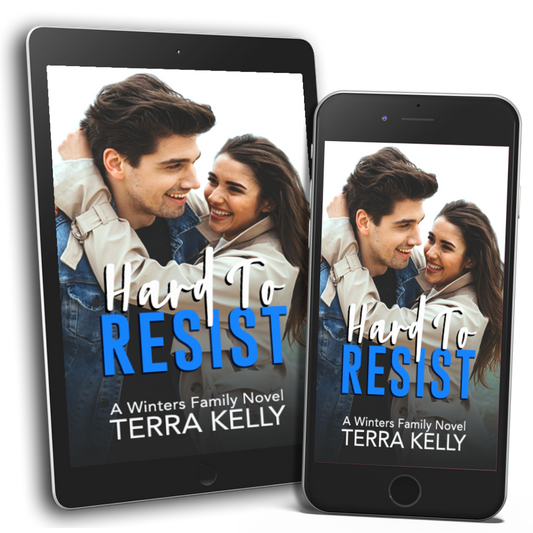You made the decision, and now you're excited because you've been writing weekly.
After about of month of consistent writing, you suddenly feel stuck. You feel unsure about your story's direction, so you stop writing. In your mind, taking a break will be easier while you think about what to write next.
Then that short break becomes a long break, and now you can't even remember the last time you wrote words for your story.
That excitement around writing a story has now dissipated. You have other things that are more important now, especially because you still have no idea what to write in your story.
Does that sound about right?
I feel seen right now, and I'm the one who wrote those words.
The scenario may be a wee bit different for you, but the premise is still the same.
You have a story idea.
You start writing.
You get tripped up and stop.
You move on to something else.
We've all done it.
My first book idea, I can remember feeling so excited. I put the writing app on my phone and iPad, ready to dive in and write all the words.
Actually, when the story popped into my mind, we were about to leave on a two-week trip. That's why I added a writing phone app because I planned to write all the words during the long car ride.
The reality– I wrote a few words during the first few hours of the trip. Then I "took a break" and listened to podcasts with my hubby. That break was an extended pause because I didn't write again until we arrived.
Something happened, though. Every time I opened the document and tried to write words, I felt stuck. I had no idea what to write next.
Thinking of story ideas can be easy, but writing the words can feel too hard.
What if it didn't have to feel so difficult, though?

Here's a secret: If you know the why for your story, it will make the process of writing feel easier.
It's true.
What does "knowing your why" really mean?
The why helps to tell you where you're heading in the story and gives you a path for what happens next when you stop writing and come back later.
"Knowing the why" is also for you because you need to know "the why" behind why you're writing the story in the first place.
In the book I mentioned above, I started writing while on a trip, and by started, what I mean is I wrote less than 300 words (maybe at most 500 words).
Technically, I was just writing words because I didn't have a plan, plot notes, or idea for the book. Instead, I just wrote what popped into my mind at the moment. The original story idea evolved from a dream, and I let myself expand on the vision whenever I opened the book file. Well, I tried to, but I did hit several roadblocks.
It's important to note that I did know why I wanted to write the story, but the why for the story itself was still a mystery.
For me: After nine years, I started writing the book even though I felt afraid to write words. I had been told I was not a good writer, and this was my first attempt at writing while still feeling self-doubt. So my why for me was to help move past the horrible barrier holding me back from creating. I was ready to let go of those memories, especially because it was just one person's opinion of my writing.
For the book, though, every time I thought about the characters, I didn't let myself think about their why. I just had this idea and would dive in and start writing.
After eight years on this writing journey, looking back at those characters, I can see the simplicity of their story. That also makes me wonder if I had taken the time to understand the why of the characters in my first book, would the storyline have been a little more complex?
Maybe. Who knows.
It's also important to note that you don't have to know the why, but it does help. When you feel stuck or get tripped up when trying to write, that's when the why will be super helpful.
Let's look at what "Knowing The Why" for your story means:
For fiction: What is the storyline? Who are the characters? Why are the characters here? Why are they together? Where is the story heading? What is the goal that would get you to the end?
The why. Why are those things happening?
Knowing the why for fiction means you understand the path, your characters, and why all this will happen, and you're prepared for what happens next every time you sit down to write.
For nonfiction: What is the problem you're solving? Who is your target audience? What are their pain points?
The why. Why are you writing this book, and who are you writing this book for?
In nonfiction, you keep it simple and solve one problem. If you try to do too many, it will become confusing for the reader. So you're solving this one thing and gearing the message towards those pain points your audience shares.

Once you wrap your head around the why, it's easier to think about what's next with the story.
You probably won't experience the feeling of being stuck anymore. Well, you could, but more than likely, your story will feel easier and flow beautifully. So those moments of being stuck won't last for too long, and you'll feel excited to keep writing.
When someone helped me understand the why, it changed my writing process. What I mean by that is I started planning and plotting my stories. I knew why the characters were on the path, so I was excited to expand on those thoughts. It was fun thinking about the stories in a much deeper way.
Letting yourself think about "the why" opens the doors for so many possibilities, and you'll be excited to write your story because you know what happens next.
Do you first think about the why of the story, or do you just dive in and start writing?
And if you know your why and you're ready to start your story, grab my course that shows you how to use the best all-in-one writing tool. Grab Get Started with Scrivener here.




